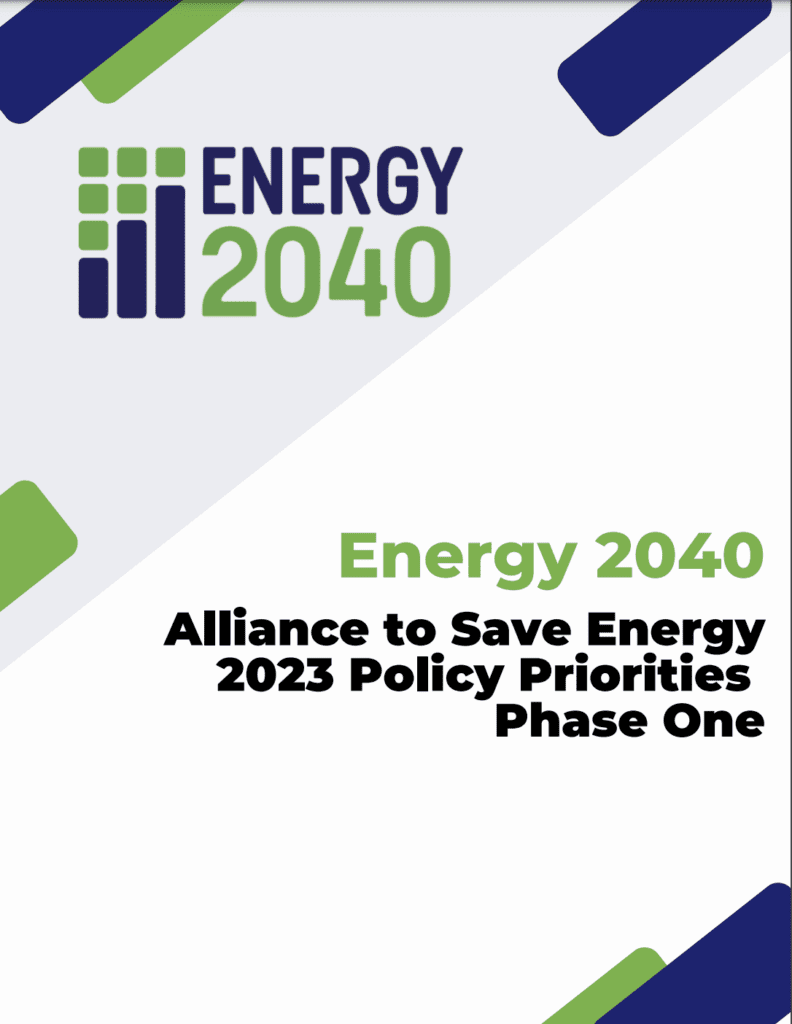Resource Library
Alliance to Save Energy: Energy 2040 Policy Recommendations
Overview
Download the Policy Priorities, and let’s work to build a net-zero future by putting Energy Efficiency First.
Quick Links

The Alliance to Save Energy and the Energy 2040 Commission present the following
set of 2023 policy priorities to accelerate and maximize the deployment of energy
efficiency solutions and strategies for the purpose of achieving greater carbon
emission reductions, energy reliability, affordability, and energy equity. The
identified proposals are the result of extensive discussions among Energy 2040
Commissioners and external partners from multiple sectors, and are representative
of the Energy 2040 Policy Workflow’s goal to achieve consensus in the adoption of
final recommendations, without compromising on the objective of pursuing
aggressive energy efficiency policies and solutions. As such, these
recommendations are focused on Energy Efficiency First and do not seek to engage
in policy actions that favor one fuel resource type over another.
According to the International Energy Agency (IEA), energy efficiency alone can
achieve 40% of the emission reductions required by the Paris Agreement. The U.S.
Environmental Protection Agency (EPA) concludes that energy efficiency “is one of
the fastest, most cost-effective ways to save money, reduce greenhouse gas
emissions, create jobs, and meet growing energy demand.”[1] The 2023 policy
priorities will focus on Inflation Reduction Act (IRA) and Infrastructure Investment &
Jobs Act (IIJA) implementation, but also seek to establish new and additional areas
of focus to meet the climate imperative. Both efforts demonstrate the strength of
energy efficiency as an energy resource and technology, while also recognizing the
leading role that energy efficiency must play as the nation pursues other climate
mitigation strategies. Energy Efficiency First as a stand-alone can effectively get the
nation nearly halfway to its emission goals; and Energy Efficiency First coupled with
other climate strategies such as community and rooftop solar or electrification can
significantly optimize emission reductions and impact the cost associated with
deploying other technologies.
